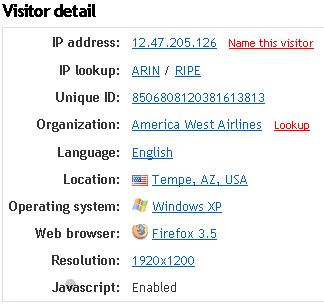
I just read a blog article about a poor customer experience with US Airways. It got me to thinking about the ways we listen, and I think it could be described as two different types of ears.
Consumer Listening: Skeptical Ears
The first type of ears are those of a skeptical consumer. We have skeptical consumer listening skills which are pretty basic and instinctive. These are the ears we use to hear scandal and negativity. Most people have this set of ears cranked way up to hear anything they need to know as a consumer.
Consumer watchdogs are everywhere, and social media brings them out in a big way. In fact, it allows each and every one of us to be a consumer watchdog and to tell our story. Anybody with a bad experience can make a pretty loud sound using social media.
Consumer Listening: Marketing Ears
With a different set of ears we hear the marketing message of a company. We turn the sensitivity of those ears way down. These are the ears we use to hear all of the good things that a company does, and the reasons we should buy from them.
As a test of your ears, just consider it this way: Do you hear me better when I say that I want to provide you with my valuable SEO and social media marketing services (and I do), or when I warn you about ways you may be screwing up your SEO or social media marketing? You see! Your instinct is to hear what could hurt you, more than hearing things that can help you. This is why it takes so much more effort to spread a good marketing message than to spread a negative message about a company.
Turning Up the Marketing Ears
There are a lot of ways to turn up people’s marketing ears and help them to hear you. Ironically, it can sometimes come from whispering into their other set of ears … their skeptical ears. If you are running a business and somebody is talking about your brand, you should be listening to the negative and even using it to your advantage. I see it all the time that companies are either not paying attention, or they hear negativity about their brand but do not address it. They just hide their head in the sand like an ostrich and wait for things to blow over. What they often overlook is all the potential for benefit they may be missing. They see it only as damage, and often try to ignore it in hopes that it will go away. The truth is that it is not going away, and ignoring it only serves to cause a sense of passive aggression. It often makes people want to scream even louder about their distrust or discontentment.
US Airways Best and Worst Scenario
What if US Airways hears this message of discontent about their brand and ignores it? It means that they will further lose faith from this consumer, and also that of others he encounters … both online and offline. On the other hand, what if US Airways used it as an opportunity to regain his faith? What if they were able to improve his opinion of US Airways and even come to make him a fan of their company? Can you imagine the value of turning it completely around and showing a disgruntled consumer that you really do want to make them a happy customer?
I suspect that the disgruntled US Airways customer, Jeff Gibbard will soon have answers to whether US Airways is listening. In the meantime some skeptical consumer ears are perked, and just waiting for US Airways to whisper.
Are you listening with both sets of ears? Come and let me whisper in your skeptical ear. 😉

I would like to add that America West Airlines, which is the same company as US Airways (they merged in 2005) has been here and did nothing! They gave no reply, and made no attempt to apologize to Jeff Gibbard or even give an excuse.
Here is a screen capture from my visitor log which clearly shows that this article is visible, even to the noisy airline industry.
Podcast: Play in new window | Download